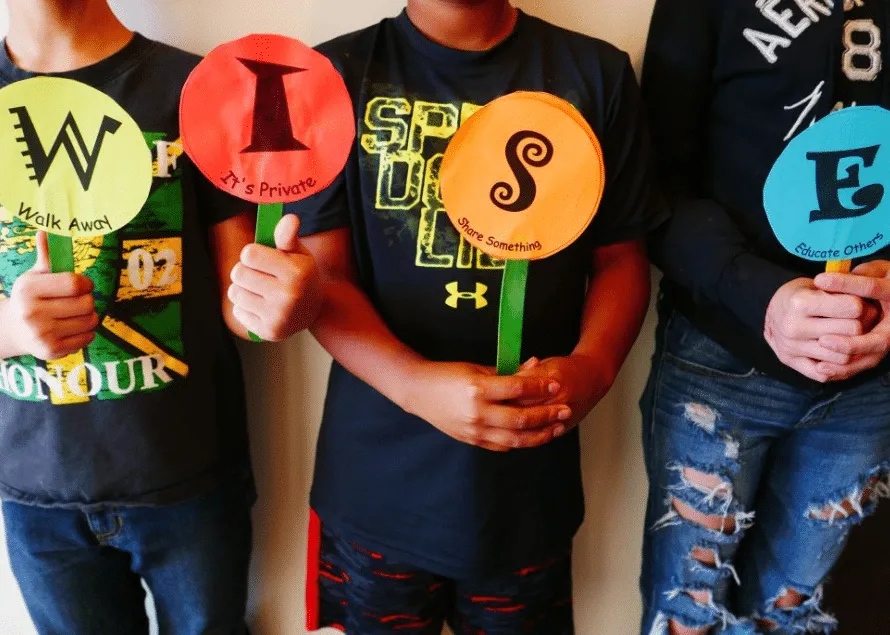An Open List: My Advice to White Parents Raising Black Children
An Open List: My Advice to White Parents Raising Black Children

The Emerging Leaders Candid Corner
A place where adopted adults candidly share THEIR stories & answer YOUR questions
As a 30-year-old Black adoptee raised by a white mother and black father, I feel a duty to offer some words of advice for White adoptive parents of Black children.
- Do your research and understand how systemic racism works and the ways in which it will target your child specifically.
- Our hair is a sacred cultural and spiritual symbol and gives us our first sense of identity. Before you even attempt to tackle the intricacies of taming our manes, find a Black hairdresser who can teach both you and your child how to care for and manage our hair.
- Please do not suddenly start acquiring Black friends after you adopt a Black child. If you didn’t have any Black friends to begin with, that’s something to think about. Saying, “My dentist is black so I can’t be racist,” is exploitation of that Black person in a way to make yourself seem less racist. And that is racist. It’s a myth that proximity to blackness immunizes white people from doing racist things. It is also racist to adopt a Black child and raise them in an all-white environment, because you have decided that it’s okay for you to live your life without seeing another Black person.
- Don’t just know who Martin Luther King Jr is. Learn about other important cultural figures in African American history such as Maya Angelou, James Baldwin, Muhammad Ali, Arthur Ashe, Ruby Bridges, Bessie Coleman, Langston Hughes, Zora Neale Hurston, Nipsey Hussle, Nina Simone, Cicely Tyson, and many other individuals who help shape African American history.
- Recognize that racism comes in many forms. When people hear the word “racism,” many think only of blatant racism, like a Ku Klux Klan member, but we must educate ourselves to recognize the microaggressions that people of color experience every day. Ask any Black individual and they will tell you that racism exists in car doors suddenly being locked, by purses clutched, by students not called on in class, by children not invited to a birthday party, by selective surveillance by security guards, by requests to touch a person’s hair, or by phrases like “You speak English really well” or “He’s so articulate!”
- Address examples of racism by normalizing discussions surrounding injustices that are seen. Conversations can start with simple topics including, “I notice that there are hardly any people of color nominated for an Oscar. Why do you think that is?”
- Find opportunities to visit and spend time in communities of color that reflect your child’s racial heritage. This may mean changing your child’s school, or volleyball team, or even your family doctor. Whatever it takes, understand that your job as a parent is always to put your child’s needs first, even when that requires some sacrifice on your part.
- Learn about Breonna Taylor, George Floyd, Elijah McClain, Philando Castile, Michael Brown, Eric Garner, Alton Sterling, Freddie Gray, Laquan McDonald, and Tamir Rice and be prepared to discuss police brutality and what it means to be black in America.
It is crucial to approach parenting with cultural sensitivity, recognizing and honoring the unique needs associated with race and identity. Understanding the intricacies of Black hair care, fostering open conversations about race, and actively seeking diverse cultural experiences are key components of providing a supportive environment.
Embracing and celebrating your child’s heritage, while also acknowledging the societal complexities they may face, can contribute to a more inclusive and affirming upbringing. Encouraging a strong sense of identity, resilience, and pride in their cultural roots will empower them to navigate the world with confidence and authenticity.
Ultimately, the journey of transracial adoption requires ongoing education, empathy, and dedication to fostering an environment where a child’s identity is not only acknowledged but celebrated. My parents have always recognized the importance of providing these things for me. Their support & commitment throughout this area of my adoption journey is what empowers me to continue sharing my experience.





